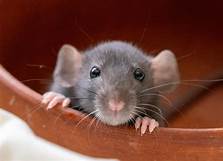How Long Do Rats Live as Pets? - Unraveling the Lifespan of Fancy Rats
Rats, often perceived as pests, have gained popularity as cherished pets in recent times. They are known for their intelligence, playfulness, and affectionate nature. While considering a rat as a pet, one crucial aspect to ponder upon is their lifespan. Understanding how long rats live as pets can help you prepare for a lifelong commitment.

The Average Lifespan of Pet Rats
The average lifespan of a pet rat ranges from 2 to 3 years. However, this timeframe can vary depending on several factors such as breed, diet, housing conditions, and overall care. Some rats may live shorter or longer than the average lifespan, influenced by genetics, health issues, and external factors.
Factors Influencing the Lifespan of Pet Rats
Here are some key factors that can affect the lifespan of pet rats:
1. Breed:
Different breeds of rats may have varying lifespans. Common rat breeds like the Norway rat and the hooded rat typically live for 2 to 3 years. On the other hand, some fancy rat breeds, such as the Dumbo rat and the Rex rat, might have a slightly shorter lifespan of around 1.5 to 2.5 years.
2. Diet:
Providing a balanced and nutritious diet is crucial for the well-being and longevity of pet rats. Rats require a diet rich in proteins, carbohydrates, fats, vitamins, and minerals. A diet consisting of high-quality commercial rat food, fresh vegetables, fruits, and occasional treats can promote a healthy and longer life.
3. Housing Conditions:
Clean and spacious housing is essential for the physical and mental well-being of pet rats. A suitable cage should provide ample space for movement, climbing, and nesting. Regular cleaning of the cage, provision of clean bedding, and maintaining a comfortable temperature and humidity can contribute to their overall health and longevity.
4. Veterinary Care:
Regular veterinary checkups and prompt medical attention for health issues can significantly impact the lifespan of pet rats. Vaccinations, deworming, parasite control, and treatment for illnesses can help prevent premature death and extend their lives.
Enhancing the Lifespan of Pet Rats
By providing a nurturing environment, proper care, and appropriate veterinary attention, you can contribute to enhancing the lifespan of your pet rat. Here are some additional tips for promoting their longevity:
1. Handling and Socialization:
Gentle handling and regular socialization with your rat can help reduce stress and anxiety, which can contribute to a longer lifespan. Spending time with your pet, playing with them, and providing mental stimulation through toys and activities can enrich their lives.
2. Exercise and Activity:
Providing opportunities for exercise and physical activity can help keep your rat healthy and active. Running wheels, climbing structures, and interactive toys encourage movement and prevent boredom.
3. Hygiene and Sanitation:
Maintaining a clean environment, regularly cleaning the cage, and washing food and water bowls frequently can help prevent the spread of diseases and infections, promoting a longer lifespan.
Understanding the lifespan of pet rats and the factors that influence it can help you provide the best possible care for your furry companion. By creating a nurturing environment, providing a balanced diet, ensuring adequate veterinary care, and promoting their overall well-being, you can contribute to a longer and happier life for your pet rat.
Declaration: All article resources on this website, unless otherwise specified or labeled, are collected from online resources. If the content on this website infringes on the legitimate rights and interests of the original author, you can contact this website to delete it.


